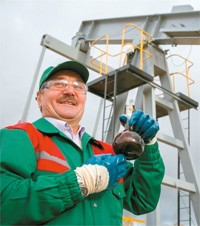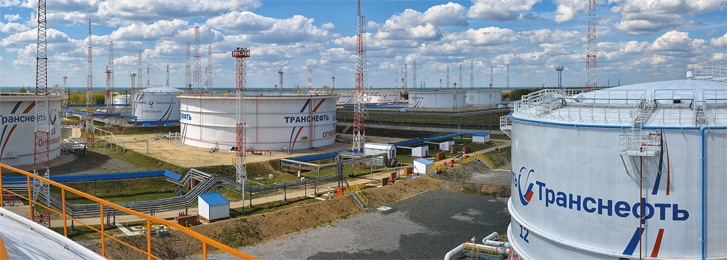Projects
Will Kazakh oil flow to Belarus?
At the end of June this year, following the talks between the Prime Ministers of Belarus and Kazakhstan, Roman Golovchenko and Askar Mamin, an agreement on trade and economic cooperation in oil and petroleum products supplies to Belarus was signed in Nur-Sultan.
Negotiations began in 2019 but were suspended several times (see Oil for Belarus, Petroleum No.1-2020). Minsk once again proposed to resume the discussion of the draft agreement in May of this year after the introduction of US economic sanctions against Belarus, under which one of the country's two oil refineries, Naftan, fell.
Tax manoeuvre hit friendship

For the last ten years, Minsk has been trying to attract Kazakhstani oil to Belarusian refineries (primarily as an alternative to Russian). This work intensified in the fall of 2019 when the state company Belneftekhim failed to agree with Russian operating companies on the price of supplies for 2020. Every year, a new annual contract was agreed on in the last days of December, and each time the price of oil became the subject of fierce discussions. Before that, the parties invariably came to a compromise through mutual concessions in both the economic and political spheres. After all, Belarus and Russia are de jure members of the same Union state – a supranational entity founded in 1997 by the first Russian President, Boris Yeltsin.
However, in December 2019, negotiations on the price of next year's shipments reached an impasse. Although analysts and political analysts say that this was primarily caused by the Belarusian leader's unwillingness to integrate more deeply with Russia, so-called Russia's "tax manoeuvre" was cited as the official reason. Its essence is to move the tax centre from oil exports to the well.
The manoeuvre in Russia backfired in Belarus. According to the state company Belneftekhim, Belarusian refineries pay Russian suppliers about 83% of the export price in Europe. After all, within the framework of the Union state, oil supplies between the two countries were carried out duty-free.
However, in 2015, Russia began a tax manoeuvre that involves a gradual reduction of export duties and an increase in the MET. As a result, raw materials for Belarusian refineries, as well as for Russian ones, have become more expensive. In 2019, the manoeuvre entered its final stage. As a result, the export duty on oil should gradually decrease from 30% to zero within six years, and the MET should increase within three years. To mitigate the negative consequences of the tax manoeuvre, a system of compensatory measures for oil companies is provided in Russia. Belarus cannot compensate for the increase in prices for raw materials for its refineries, so the reaction to the rise in the price of Russian oil since January 1, 2020, was extremely painful.
Previously, Moscow allowed Minsk to re-export some of the imported oil to compensate for losses from the tax manoeuvre. However, it was decided to abandon this practice. At the end of 2019, the Belarusian side estimated the losses from the tax manoeuvre in 2020 at 400 mln USD.
First Deputy Prime Minister of the Government of Belarus Dmitry Krutoi said that Belarusian refineries could receive raw materials from other countries: Poland, Ukraine, Lithuania, Latvia, Azerbaijan and Kazakhstan. According to the Deputy Prime Minister, commercial offers have been sent to all potential suppliers. And since the beginning of 2020, Belarus has started to import raw materials under one-time contracts in small batches. The first of batches – 86 thousand tons from Norway – arrived in January at the Lithuanian port of Klaipeda, from where it was delivered by rail to the Novopolotsk refinery. Belarus was also able to purchase 750,000 tons of oil from RussNeft, owned by Russian oligarch Mikhail Gutseriyev.
In total, in the first quarter of 2020, about a million tons of alternative (non-Russian) oil came to the plants, of which 720 thousand tons are Azerbaijani, the rest is American, and oil from the Persian Gulf. As a result, the agreement with Russia was agreed and signed, but the official Minsk, as they say, drew conclusions.




